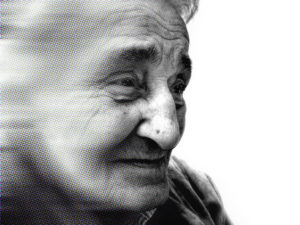The American Geriatric Society (AGS) has released an updated list of recommendations that will raise awareness about treatments and tests that may lack efficacy and even cause potential harm. The list is part of the ABIM Foundation’s Choosing Wisely campaign. More than 70 societies have released recommendations of test and treatments that patients and providers should question.
The updated list from AGS reflects new research on conditions affecting older adults, such as agitation, certain types of cancer, delirium, dementia, diabetes, and insomnia. Based on new research and insights, these topics may warrant deeper discussions on the appropriate healthcare choices, according to AGS.
“Providing high-quality care to older adults means recognizing and responding to the specific, evolving challenges and opportunities that we all face as we age,” Wayne C. McCormick, MD, MPH, AGSF, president of the AGS, said in a statement. “Since 2012, the AGS and the ABIM Foundation have worked together through Choosing Wisely to synthesize pressing updates from the geriatrics field in a format that is easy to understand—and apply—in everyday practice.”
AGS has updated 7 specific tests, treatments, or procedures based on emerging expert opinion. For instance, lung cancer screening have been added to the list of oncological screenings that should not be recommended for older adults without first considering life expectancy and the risks associated with testing, overdiagnosis, and overtreatment. In addition, when recommending moderate blood-glucose control for older patients with diabetes, medications other than metformin should be avoided.
AGS continues to recommend avoiding antipsychotics as the first choice treatment for behavioral and psychological symptoms associated with dementia. This guidance has been expanded based on new data. The AGS panel of experts determined that antipsychotics provide “limited and inconsistent benefits” and include the risk of oversedation, worsening memory problems, and increased likelihood of falls, strokes, and mortality.
The Society also added new guidance:
- Pursuing oral-assisted feeding for patients with advanced dementia instead of a “percutaneous” feeding tube threaded through the skin into the stomach
- Not using antibiotics to treat patients who have bacteria in their urine (a condition known as bacteriuria) unless certain urinary tract symptoms are present
- Conducting a treatment regimen review before prescribing medication
“As the older adult population in the US continues to grow, it’s so important that geriatrics care principles reflect the latest science, evidence, and advice supporting quality health and care,” said Paul Mulhausen, MD, MHS, FACP, AGSF, who chaired the AGS Choosing Wisely Workgroup responsible for the list. “We are grateful to the ABIM Foundation for this opportunity to share timely recommendations that will help patients avoid unnecessary tests and procedures and support overall well-being.”

